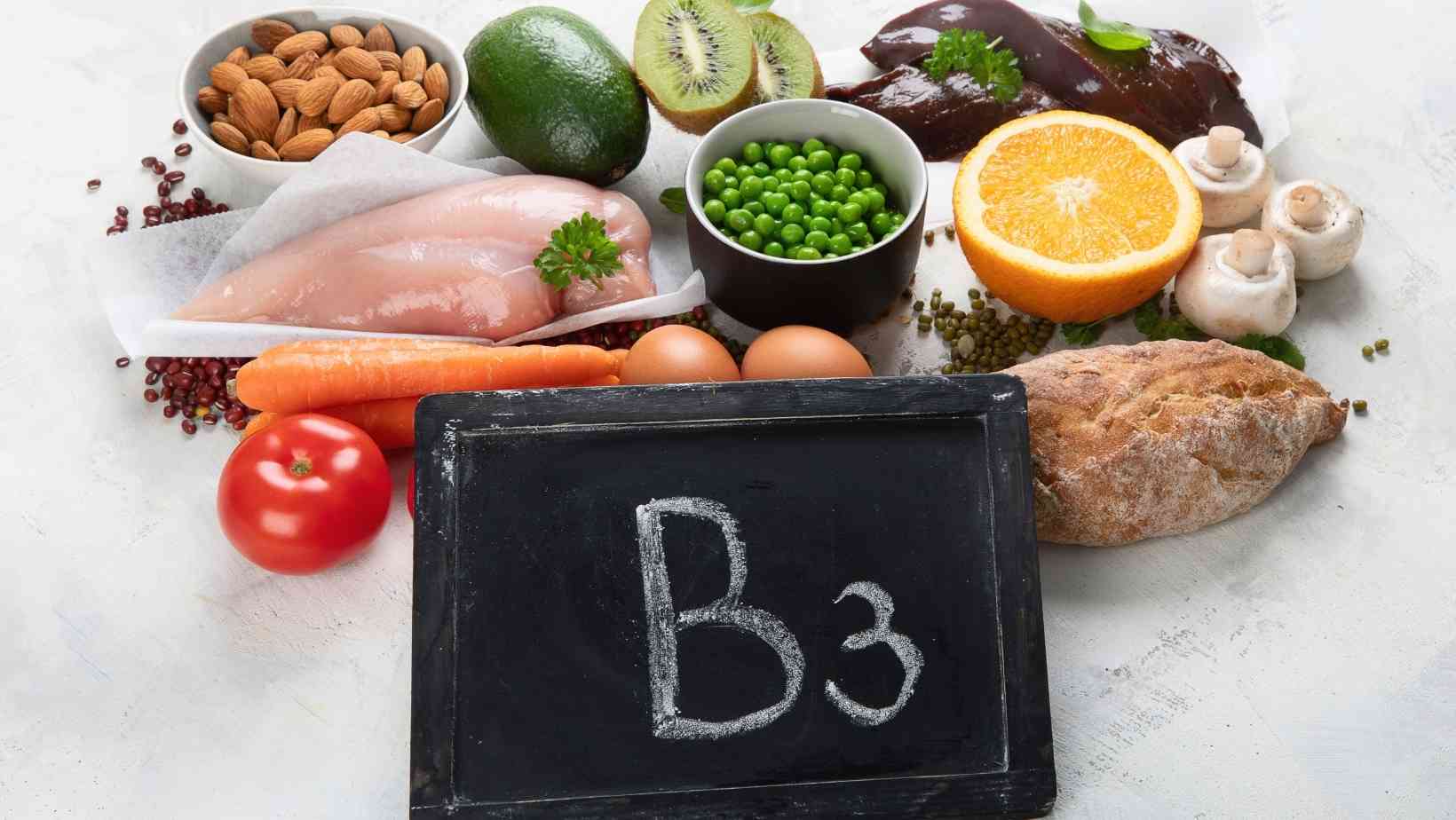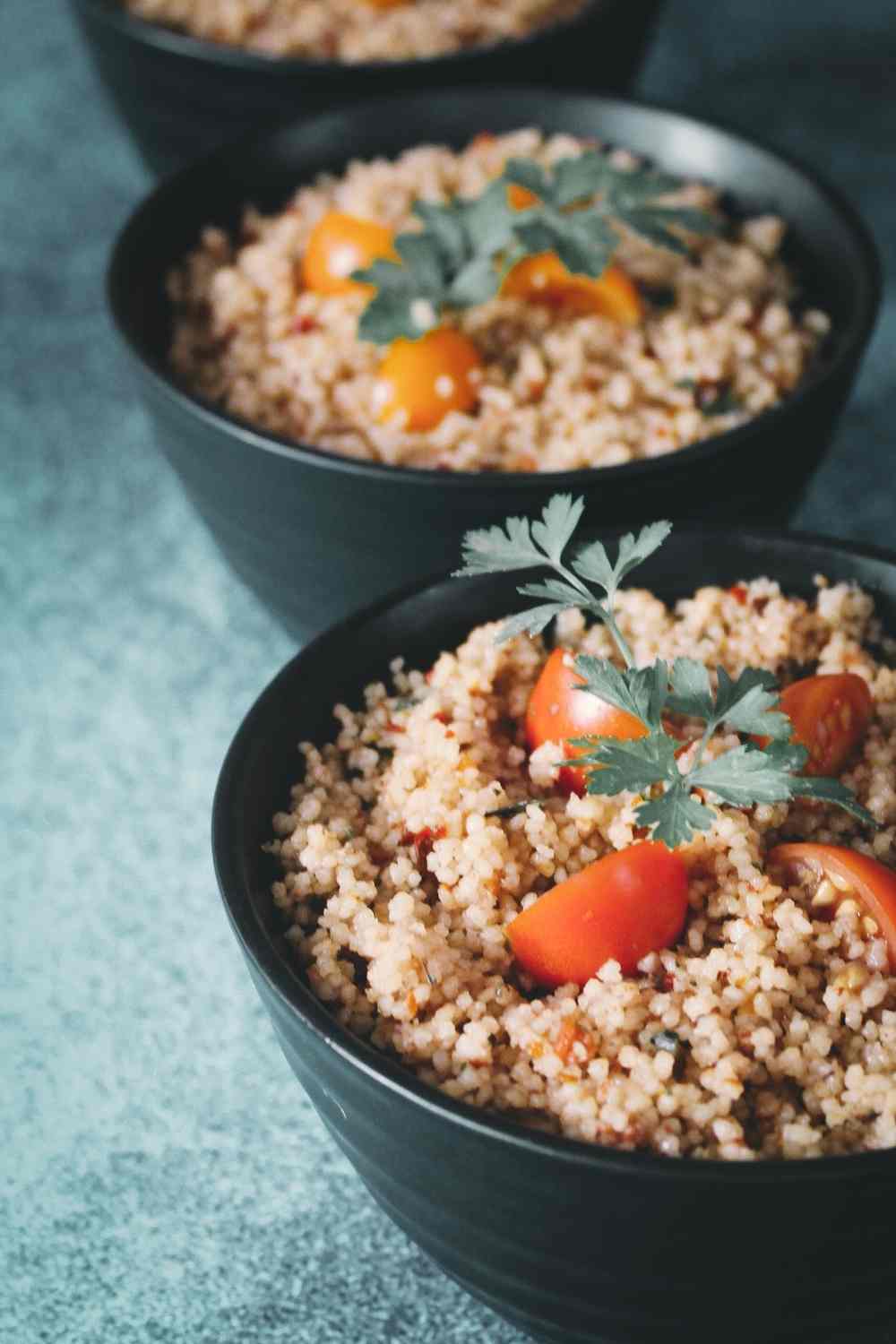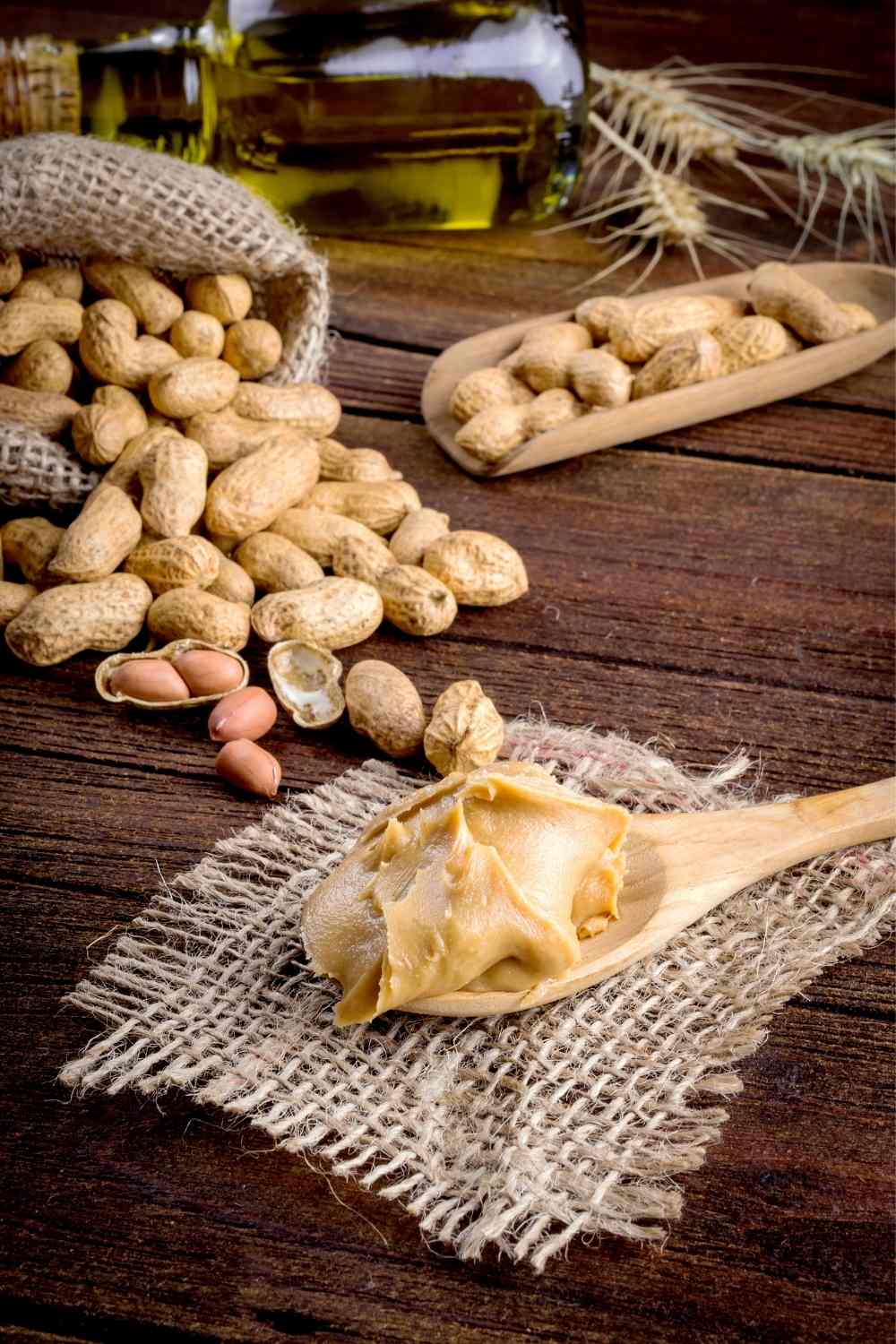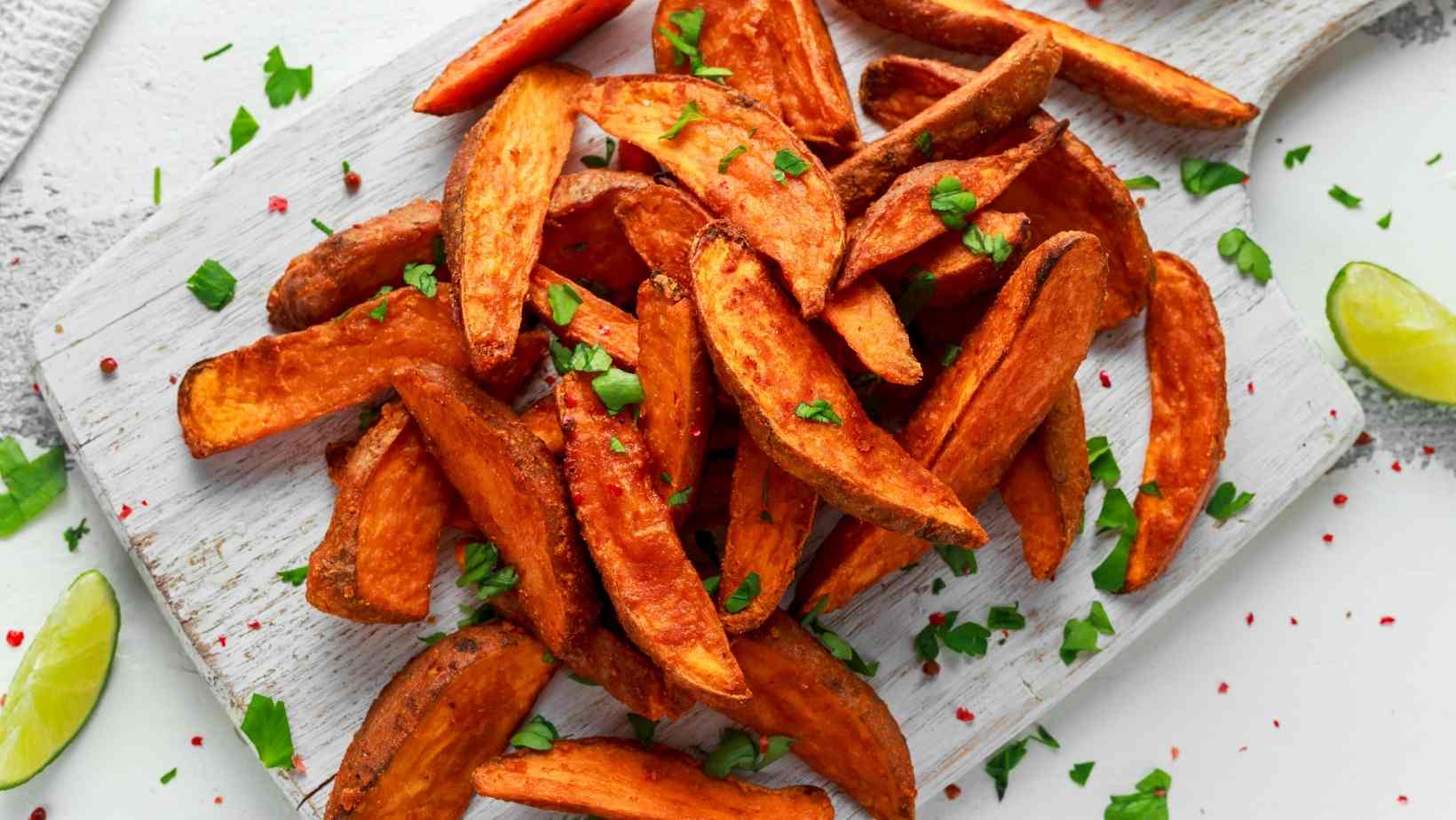Niacin is a crucial vitamin that is utilised by all the tissues in the body. Eating foods that are rich in niacin is a smart approach to guarantee that you are eating enough of this crucial vitamin. Niacin may be present in both animal and plant sources. It is also present in B-complex vitamins and other supplements.

What Is Niacin?
A water-soluble B vitamin. It goes under various names, including vitamin B3, niacinamide, nicotinic acid, and nicotinamide.
Sources of niacin include food and supplements. Animal protein tends to contain larger quantities of niacin than plant foods, yet an adequate dose of niacin may be attained on diets that eliminate animal products.
Why You Need Niacin
Niacin is connected with several health advantages, including decreasing cholesterol, guarding against Alzheimer’s disease, and assisting with diabetic control. The major role of this vitamin is to avoid pellagra, which is niacin deficiency. In addition, it creates NAD+ which is necessary for cellular processes including obtaining energy from carbs, protein, and fat.
Niacin Requirements
The requirements for niacin are:
- Adult men: 16 mg per day
- Adult women: 14 mg per day
Note: The recommended daily allowance (RDA) for niacin differs on age and sex. Women who are pregnant or nursing are urged to increase their niacin consumption.
Though a niacin deficiency (pellagra) is uncommon in Western nations, it is nevertheless advisable to take lots of foods that are rich in niacin to obtain enough of this vitamin. Severe niacin shortage may result in diarrhoea, dermatitis, dementia, and potentially even death.
Brown Rice
One cup of cooked brown rice has 2.59 milligrams of niacin.
Brown rice is a popular source of complex carbohydrates. It is a terrific method to consume lots of healthy grains. Though many meals rich in niacin originate from animal sources, brown rice is an example of a plant-based source of niacin.

This grain is also an excellent source of fibre, protein, and minerals including magnesium and zinc.
Tuna
One can of tuna provides 21.9 mg of niacin.
If you have ever enjoyed a plate of tuna salad or a tuna poke bowl, you probably did not know you were eating a niacin-rich meal. Tuna has an amazing nutrient profile, which is why it is frequently suggested as a source of lean protein and other vitamins and minerals.
One serving of tuna is enough to meet most people’s niacin needs for a whole day. If you are searching for a strategy to ingest extra niacin, grab for the can of tuna that is likely already in your cabinet.
Portabella Mushrooms
One cup of raw portabella mushrooms provides 3.86 milligrams of niacin.
Since they are low in carbs and rich in vitamins and minerals, mushrooms are popular among low-carb and vegan diets.
Consuming a variety of mushrooms is a wonderful method to ingest a range of nutrients. If you are seeking plant-based meals that are rich in niacin, portabella mushrooms are a fantastic source.
Lean Chicken Breast
A 3-ounce portion of cooked chicken breast provides 10.3 mg of niacin.
Like other animal proteins, chicken breast is a rich source of niacin. Chicken may be a nutritious source of protein for meat lovers.
If you routinely eat chicken, you are likely receiving sufficient niacin as a modest serving size of chicken contains about 100% of the daily recommended requirement for niacin.
A 1-ounce serving of peanuts provides 3.42 milligrams of niacin.
Peanuts
Snacking on peanuts is not only for the ball game. A handful of raw peanuts or a few spoonfuls of peanut butter may offer more than 25% of your daily niacin requirements.

Peanuts and peanut butter are also excellent sources of healthy fats and protein for vegans and vegetarians. If you do not consume meat, look to nuts and nut butter for more niacin in your diet.
Pork Tenderloin
A 3-ounce portion of cooked pork tenderloin offers 6.32 milligrams of niacin.
While pork may not contain as much niacin as other animal proteins, such as lean chicken breast and tuna, it is a greater source of niacin than plant diets.
Pork tenderloins are not as popular as other kinds of lean animal protein, but they are a wonderful source of protein and B vitamins.
Green Peas
One-half cup of cooked green peas provides 1.18 milligrams of niacin.
Green peas are surprisingly rich in plant-based protein at 4.1g per ½ cup. They are also rich in other minerals including potassium, iron, zinc, magnesium, and niacin. Since peas may be canned or frozen, it is simple to keep green peas on hand at all times.
When you want to prepare a niacin-rich dinner, consider adding a side of green peas to your dish.
Avocados
A raw avocado that weighs roughly 200g provides 3.49 milligrams of niacin.
Avocados are particularly popular among low-carb and vegan diets. They are a great source of healthy fat and other nutrients.
Although you are unlikely to consume the full avocado, even 1/2 of avocado supplies more than 10% of your daily requirements.
Nutritional Yeast
One tablespoon of healthy yeast flavouring provides 39.4 milligrams of niacin.
Popular among vegans for having a nutty taste evocative of Parmesan cheese, nutritional yeast is a rich source of B vitamins, including niacin. One tablespoon offers more than twice the daily amount of niacin. It is simple to add nutritional yeast to dishes. Sprinkle on top of spaghetti, soup, and salad for a tasty dose of niacin.
Sweet Potatoes
One medium-cooked sweet potato has 2.22 milligrams of niacin.

Sweet potatoes are a wonderful source of plant-based niacin, vitamin A, vitamin C, potassium, and more. They are also simple to absorb. Since sweet potatoes are tasty and soothing, it is simple to add more of them into your diet. Sweet potatoes combine nicely with other niacin-rich meals like lean chicken and avocado.
A Word From Verywell
Niacin is essential for a range of body activities, hence it is crucial to ingest meals rich in niacin. Many foods that are rich in niacin tend to originate from animal sources, such as tuna, chicken, pig, and cattle. Plant sources of niacin include avocados, brown rice, and sweet potatoes. Seeds, green leafy vegetables, milk, coffee, and tea also contain some niacin.
Since niacin-rich foods are numerous, a niacin deficiency is unusual in Western nations. As long as you have a balanced diet, you should have no trouble consuming an abundance of foods that are rich in niacin.




